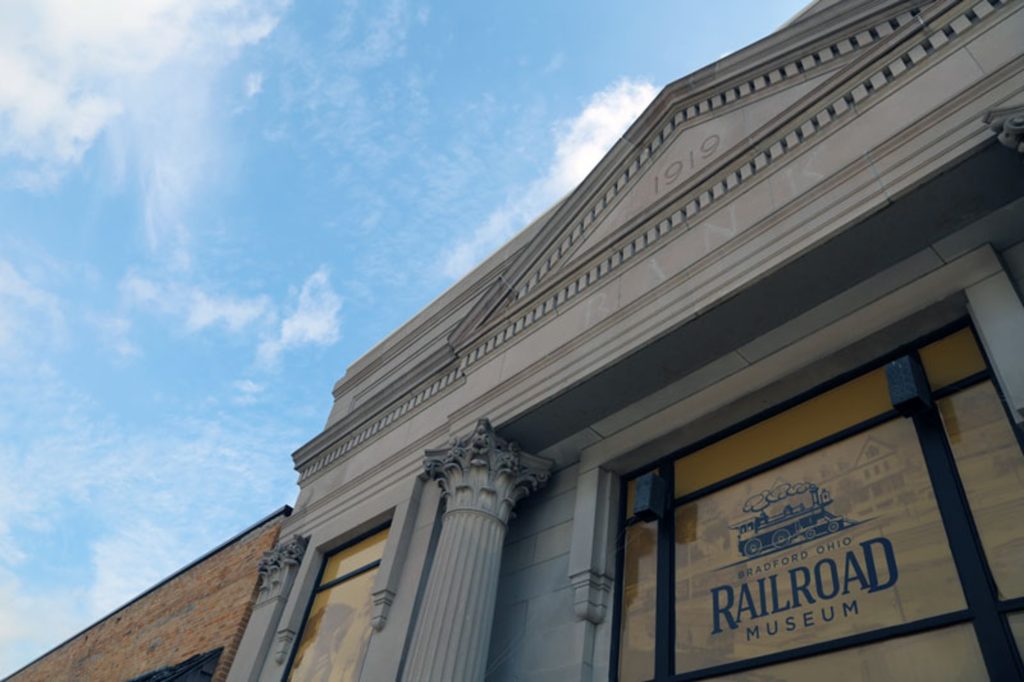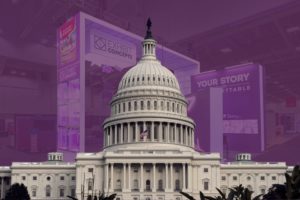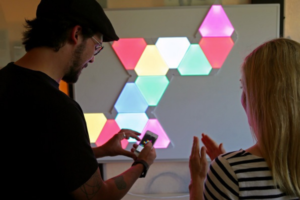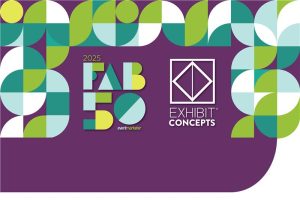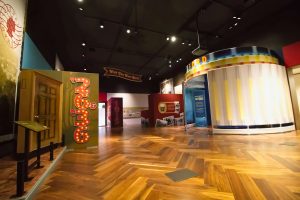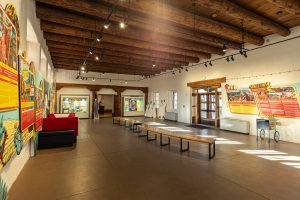We’ve all visited a museum at some point in our lives, whether it was during a school field trip or with family on vacation. Approximately 850 million people visit American museums each year, but have you ever stopped to wonder how many people that museum impacted or why it came to be?
In 1683, the first museum (the Ashmolean Museum in Oxford) opened its doors and the rest is history. For centuries, museums have played an integral role in preserving the history of our society. Exhibits tell us stories about how our nation, our communities and our cultures came to be and without them, those stories could be forgotten.
Museums serve our communities in a multitude of ways, as we have seen firsthand. In Dayton alone, the Boonshoft Museum of Discovery holds a collection of over 1.8M objects important to not only our community, but to the world.
Museums Inspire and Educate
More than likely, you can find a museum in your area covering any core subject. From the American Museum of Science and Energy to the National Museum of the Pacific War – stepping outside of the classroom to further expand on students’ knowledge is crucial to developing our younger generations. It is possible that a student will leave a museum inspired to become a scientist, a leader, a musician, or a writer.
Museums possess what the classroom may not: the materials and information that enrich and create an experience that is memorable. In the Dayton area alone, museums tell the story of the Wright Brothers, who pioneered American aviation in Dayton, Ohio. The Mound Cold War Discovery Center brings to life the secrets of the Mound Laboratory, a division of the top-secret Manhattan Project during the Cold War in Miamisburg, Ohio.
Yes — the information found in museums can also be found within a textbook in a school’s library, a classroom or on the web through search engines such as Google. But what those materials don’t always effectively show are the impact that those stories had on the places our students live.
“The collections within a museum are a significant resource to the community. They allow people to experience things from all over the world without ever leaving town,” said Jill Krieg-Accrocco, Curator of Anthropology and Exhibitions with the Boonshoft Museum of Discovery.
To see it with your own eyes will create a lifetime memory that studying and memorizing information will not. The experiences someone may have in a museum can shape who they are and who they will be.
“My favorite thing about working in a museum, is when I have the chance to show children visiting from a school, a fossil or an object on display, and explain to them what it is and why it is important. When they look up at me and smile, I can see the impact that we are making,” said Krieg-Accrocco.
Academic Research
Behind the scenes, museums are conducting important research on the objects and artifacts in their collections. Not only do personnel at the museum conduct research, but museums may also partner with outside entities such as universities so that researchers, graduate students, and professors have the opportunity to utilize their collection.
The constant research occurring in museums can tell us a lot about the organisms and the time periods before we lived and walked on our city streets. The research may also tell us about how the world around us works, our health, or how the things around us came to be.
The Boonshoft Museum of Discovery recently uncovered massive research potential from objects in their ice age collection, while partnering with the Virginia Museum of National History. In Darke County, Ohio, bones from ice age creatures such as the mastodon were excavated in the 60s and preserved by the museum. One of those bones, the femur of a mastodon, was sent for radio carbon dating. It was discovered that the animal lived and died 12,000 years ago right on our soil!
“There’s always rediscovery in our collections, which are nearing 2M. We’re always discovering something new – there are countless research projects that we’ve not yet tapped,” said Krieg-Accrocco.
The research done in museums tells the stories of all those that lived before us. Without those stories, we wouldn’t be able to understand our world as we know it.
Social Impact in the Community
It is crucial that our society preserves the history and cultures that shaped who and where we are today. As George Santanya, writer and philosopher said, “Those who do not learn history are doomed to repeat it.” Museums tell powerful stories of tragedy and overcoming adversity; they drive people to evoke change at home or across borders.
Helping the Mississippi Civil Rights Museum bring history to life is a testament to the impact museums have in our community. The mission of the museum is to exhibit the history of and educate the public about the American Civil Rights movement in the state of Mississippi between 1945 and 1970. The interactive galleries follow the journey of black Mississippians in their fight for equality – a fight that was shared across the nation and a fight that we must continue to learn from in the present day.
“It was a great honor to work with the Mississippi Civil Rights Museum,” said Steven Lowry, Account Executive for Exhibit Concepts. “This story needed to be told because of the impact it has on the community, the state, and the nation. This is an institution that will make a difference for generations to come and I’m proud to have played a role so that this history and impact isn’t lost.”
As Steven notes, a museum may be specifically impactful to the community it affects, but those stories and lessons can be translated across the world so that our societies can evolve for the better.
The progression and preservation of society depends on our museums. At the end of a tour, one does not just leave in awe of the beautiful displays and artifacts they observe; nor do they forget the lessons they learned. When you visit a museum, you’re leaving with a lifetime of memories, knowledge and a better understanding for the society and people that paved the way for life as we know it today.
If your weekend is free and you’re hungry for knowledge, consider visiting your local museum. They’re worth your support.


